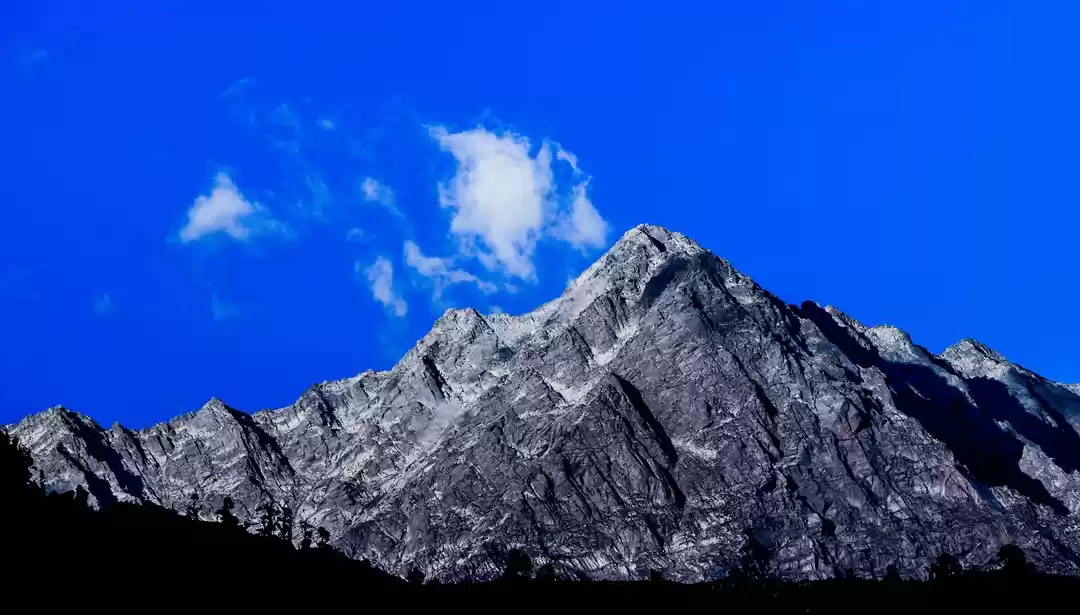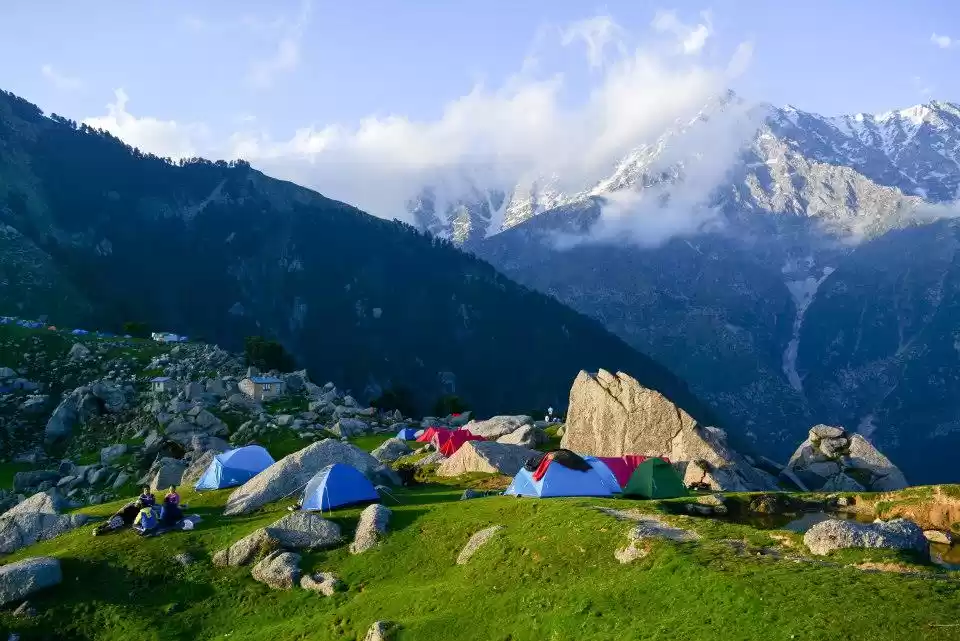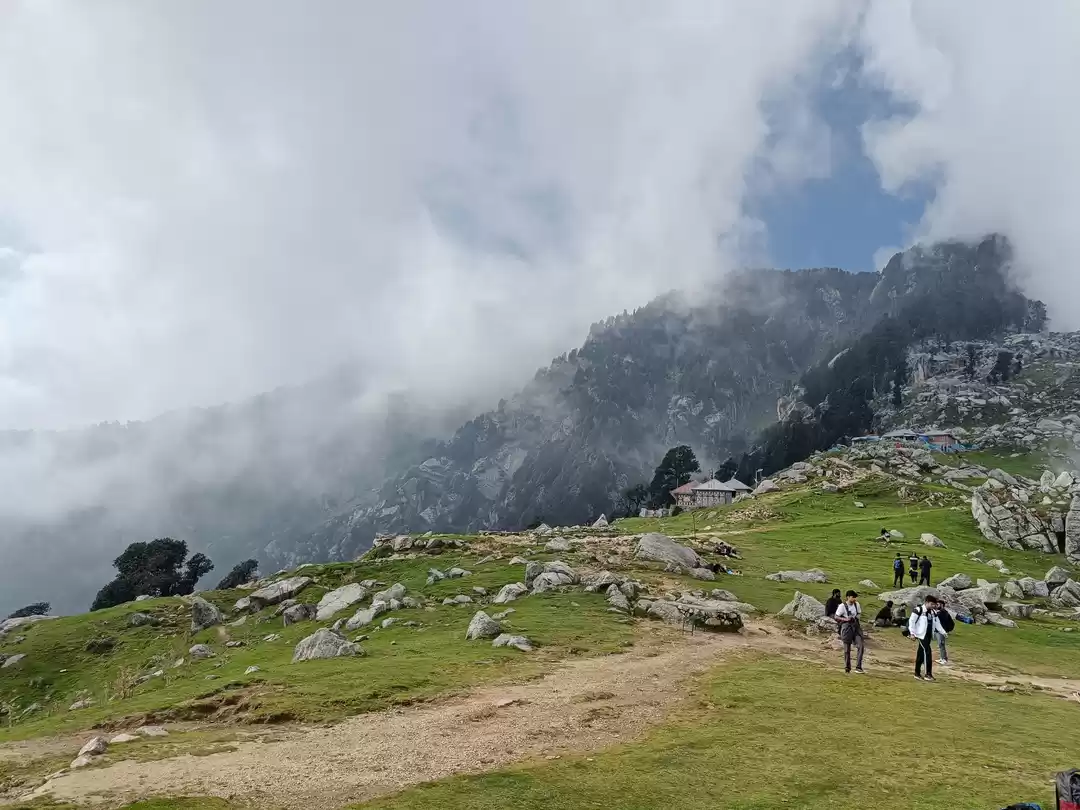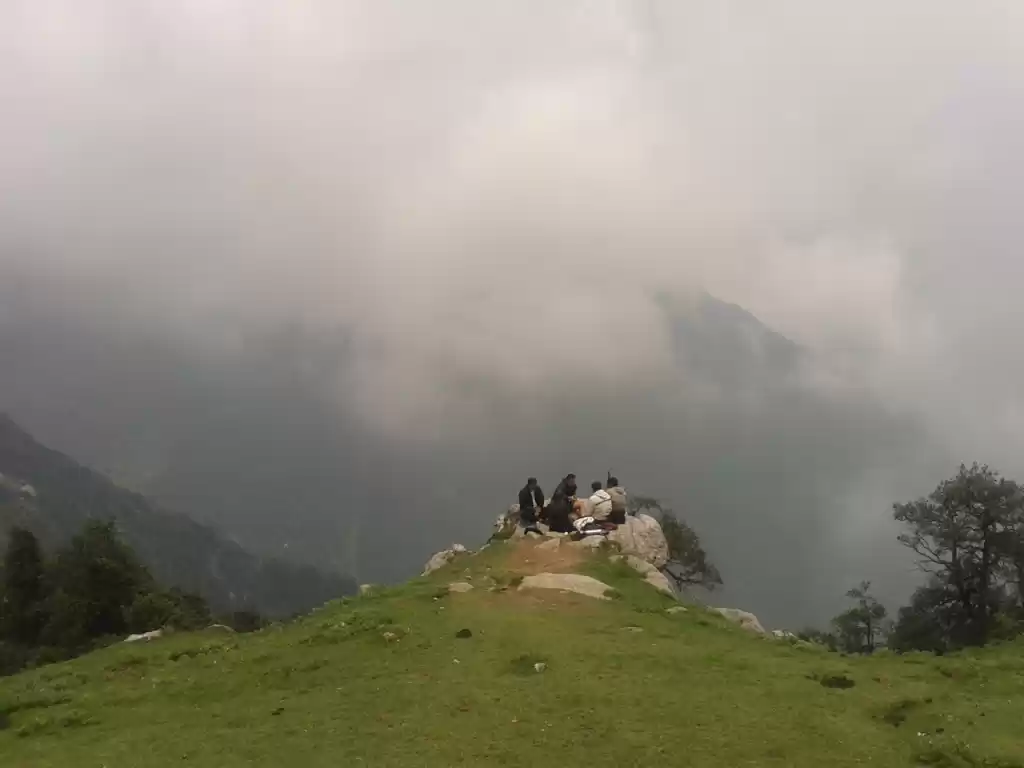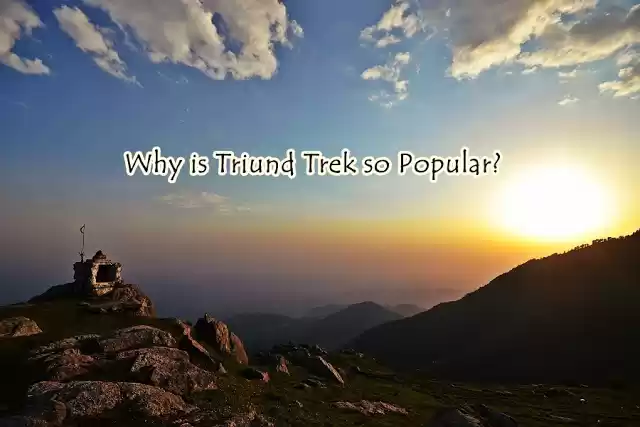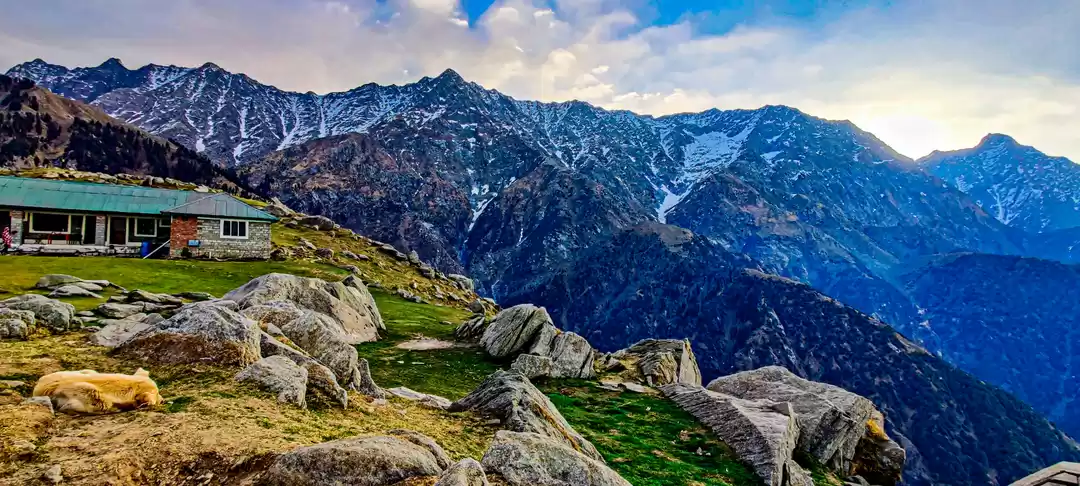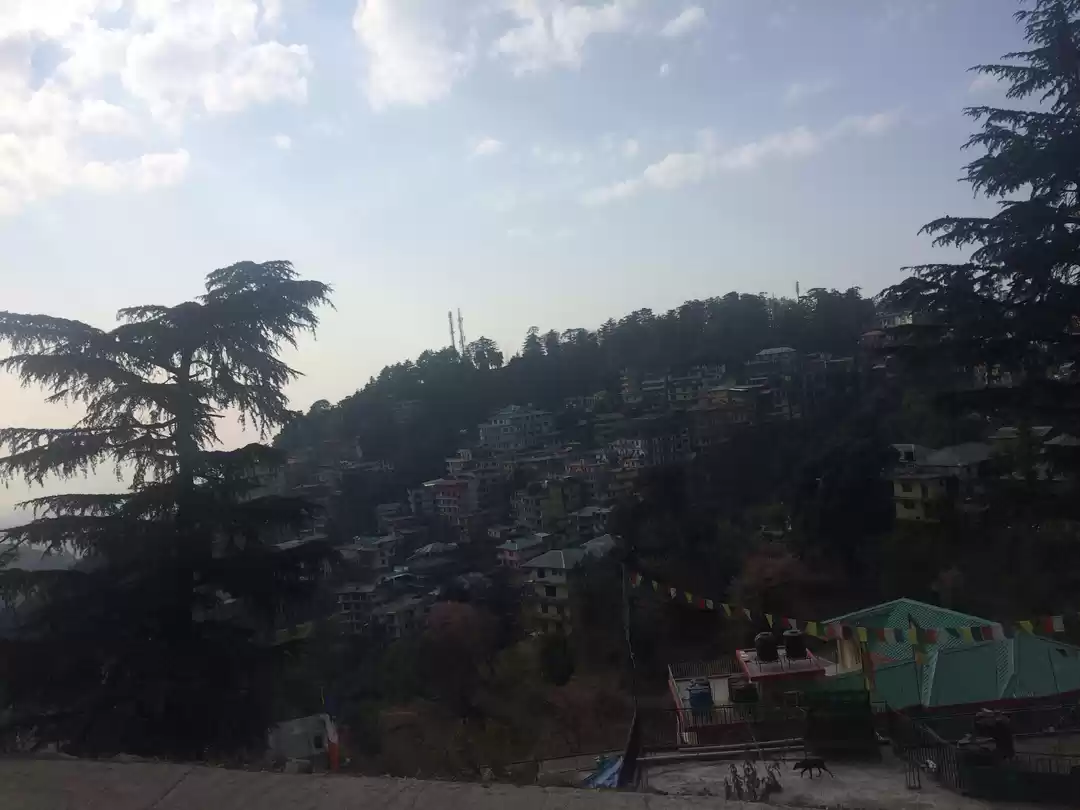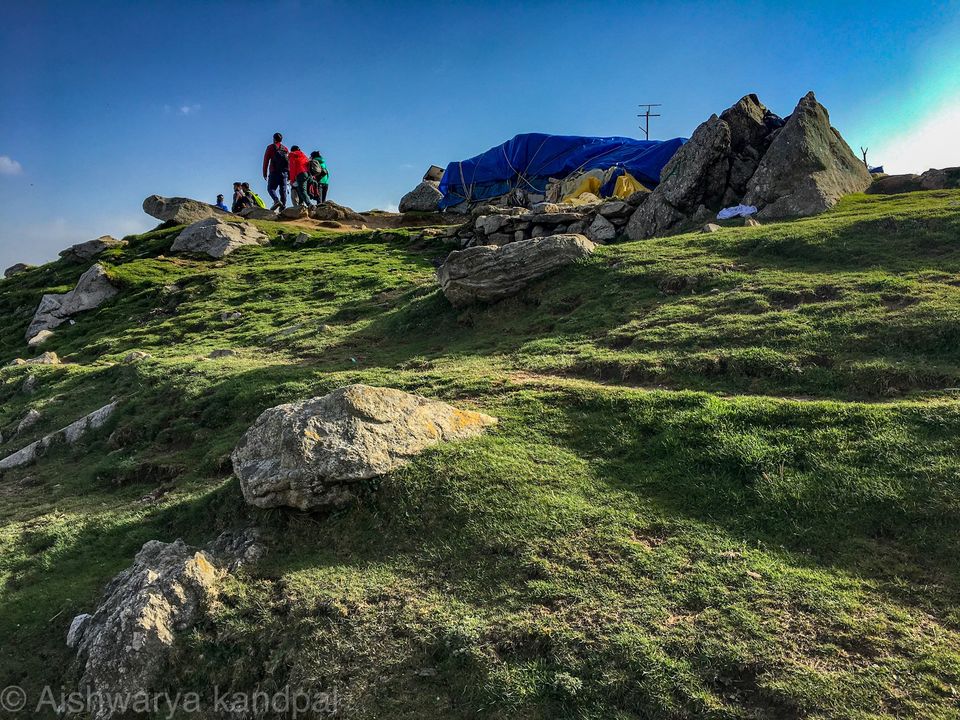
Gentlemen, never underestimate your first trek.
On a side note (which is also ironic given how much i fell and broke my winy ass), I'm a mountain kid. A Pahadi. By that guess, treks and hikes should be my second language, like the first ever steps taught to me even before I entered school at age 5. Only, they weren't.
My first trek as an adult comprised climbing all the way up to Triund with an 8 kilo backpack, tents and sleeping bags et al, taking multiple stops on the way, being egged by my co traveller to NEVER stop, being held everytime I was about to fall into the gorge and die, and being asked to eat less maggi and drink more water. We covered the trek up in a record 6 hours, stayed there for a night, came back in 5 and were proud of ourselves to have managed it so well.
Below is the itinerary you should follow if you want a well planned, self driven, self created, slightly gone wrong but an overall well lived, well loved budget trip to Triund.
Day 1: We arrived in Dharamshala on a crisp Thursday morning. Our lodge was at Hotel Shivalaya which was about 2 kilometres from Mcleodganj and 1 kilometer from Dharamkot. Pretty clean and roomy. Although the autos back and forth to McLeod cost us about 200 bucks each time, which one should be mindful of and might opt for a hotel in Mcleod itself. Most hotels in the town are cost effective and what should matter more are the logistics with regard to distance to Triund. After dumping our stuff in the hotel, we made our way down to Mcleod and did so while it poured on us. Big dollops of rain causing us to take shelter in the numerous Tibetan homes that line the Dharamkot road. Furthermore, it also led me to buying a raincoat from town, one that cost a mere 200 bucks and which couldn't be used for the remaining 3 days because it didn't once rain. But a good investment nonetheless since weather in the mountains during early summer can be horribly unpredictable.
Post our rain(coat) check, we quickly broke for lunch at my tried and tested restaurant- The Tibet Kitchen. The usual broth, steamed momos, some thupka and some nice bacon to eat (INR 1100). We followed this up with a nice walk in town looking for any essentials we might need for our trip further. Remember, the lane going right of the main chowk is a better place for shopping coz I've skirted it almost 10 times on a single day on almost all my trips to Mcleod between 2015-now. But my partner seemed to know a lot more than I did despite being a first timer here. So he quickly found out a guy from whom we were to rent our tents and sleeping bags for our trek. Excellent decision because you can never count on luck to serve you tents on the treks. They all run out with the amount of trekkers each day. One major tip, stock yourself completely because you get maggi worth 80 on the top, water worth 70, and meals worth 250. There's no electricity, the nights are chilly and eerie a and phones don't work. If you are me, you're going to love it.
Day 2, part 1: Day 2 began with much hyperactivity on my part since I thought the trek was going to be a cakewalk. "Arey this is how I used to walk up to school everyday for 12 years," said I to my partner in a very self convinced tone. He, who had done treks outside of the country and had a good-ish inkling that this was going to be no easy feat, boomeranged my enthusiasm back, less convinced albeit. We started at around 11 from our hotel till Gallu Devi, which is the first pit stop to Triund. Ideally, if you can afford or would like to take it easy, you can also get a cab worth INR 400 from Dharamkot to Gallu Devi Temple. Gallu makes the border between the trek and the town below and here's where you might have to sign before the security and submit I cards. You wont be asked to pay any money, no. My trek uphill to Gallu made me wonder why id ever chosen to do this in the first place. Carrying tents, backpackes, glucose filled water bottles in the sweltering sun was no sensible thing to do. But once at Gallu, it did made me feel good that an extra lap had been undertaken only to warm ourselves for the journey ahead.
Day 2, part 2: This part involves the entire trek where I held on to dear life while crossing the gorges, took a lot of pit-stops, bought more water, looked up at the skies and wondered why the hell did I ever have to do this, and basically wined more than I should have but oh, this is also that part taught me of resilience, resistance and the joy of having accomplished something which I had completely underestimated when I shouldn't have. Triund upon reaching the top was gorgeous. I'll be sharing photos at the bottom of this article. Also spent a total of about 500 bucks in the journey upwards.
Day 3: Triund: Triund was a small, small speck in the entire spectacle of the Dhauladhar mountains, a lot of whose peaks aren't even visible from this little green meadow. It's full of trekkers, co travellers, ocassional monks and sometimes some cute Thai kids who do exactly in our country as we do in theirs. They're noisy and adorable. And the mountains in the night can be most haunting thing ever- the cold will bite you in the ass if you aren't well endowed with sleeping bags and mattresses. And the winds will blow you dry. And should you ever step outside in the cold to take a piss, you'll be watching over your shoulder and more in the front, given you're facing the surreal, white washed and milky looking Dhauladhar Himalayas. It is all so haunting yet breaktaking.
Day 4: Was all about shopping and skirting back and forth on the two lanes of Mcleod that go on either sides of the chowk. I bought a traditional wall hanging directly picked from the guy who stitches it and some of the favourite oriental mugs that i pick on most trips to this hill town. The wall hanging cost me INR 350 and the mugs INR 200 in some of the farther shops as against their hiked up prices in the shops around the chowk. I also had the best broth at the Peace Cafe for some 150 bucks. Delicious to the core.
I'm now sharing some pictures from my trip. And my only suggestion is that go with an open mind, do your research and don't litter the mountains because they take years to recover.














































